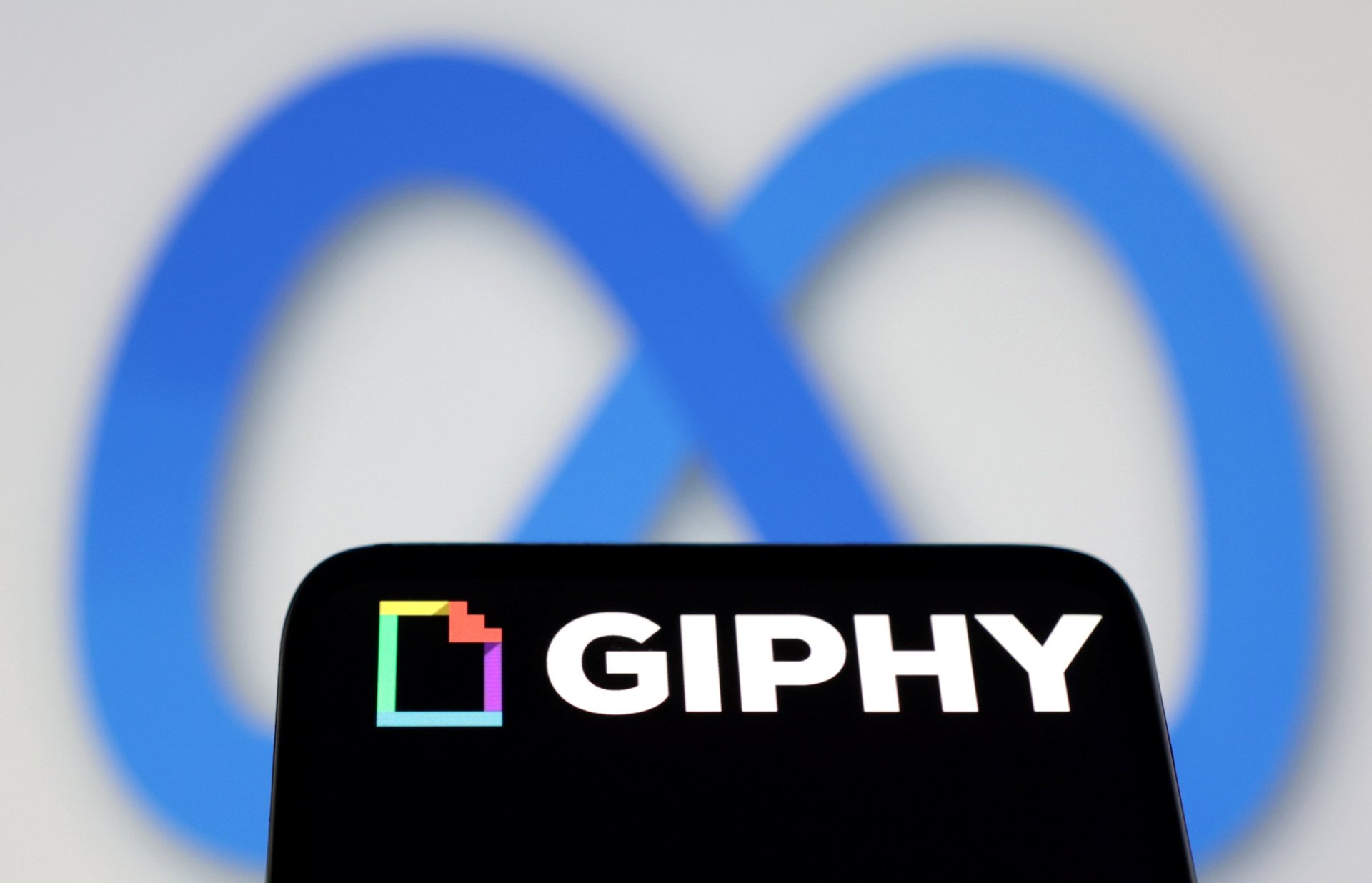Meta was ordered to sell off its GIF empire
The UK's antitrust authority told Facebook's parent company to divest from Giphy, which it acquired in 2020

The UK’s antitrust authority finalized its decision to force Facebook parent company Meta to sell off Giphy, the GIF search engine and database it bought for $315 million in 2020.
In a press release, the Competition and Markets Authority (CMA) said that Meta’s takeover of Giphy could decrease competitors’ access to GIFs and give the company an unfair advantage in the social media and digital advertising markets. The decision ended a lengthy appeals process that began last year.
“The only way this can be addressed is by the sale of Giphy,” said Stuart McIntosh, who chaired the CMA’s investigation into the deal. “This will promote innovation in digital advertising, and also ensure UK social media users continue to benefit from access to Giphy.”
In a statement to Quartz, Meta said it is disappointed but accepts the CMA’s ruling as the “final word” on the matter, pledging to work closely with the regulators to divest from Giphy.
Meta bought Giphy at a moment when GIFs were considered an ascendant form of visual communication. But digital culture has changed rapidly since then, and Meta itself conceded that young people now think GIFs are “cringe.”
New scrutiny for tech takeovers
It’s not uncommon for antitrust authorities to block mergers and acquisitions, but they’ve been reluctant to take on a larger workload in the face of increased merger activity in recent years.
Between 2010 and 2018, merger filings nearly doubled from 1,100 to 2,000, but US federal enforcement actions (pdf) at about 40 per year, according to the Washington Center for Equitable Growth.
During that period Meta—then called Facebook—made its largest purchases: In 2012, the company bought photo-sharing app Instagram for $1 billion, in 2014 it bought the virtual reality company Oculus for $2 billion, and that same year it bought messaging app WhatsApp for $19 billion.
Some creative accounting by Meta allowed the Giphy deal to fly under the US Federal Trade Commission’s threshold for reviewing mergers, but the British authorities flexed their muscles and took up the case.
Even though foreign countries have the authority to block mergers between two US companies, it’s exceedingly rare. Last year, Benjamin Sirota, a former Justice Department antitrust prosecutor and a partner at the law firm Kobre & Kim, told Quartz the CMA’s scrutiny of the deal showed it has a “low threshold for investigating and ultimately trying to block deals that have some sliver of a connection to the UK.”
The CMA’s action here exemplifies a more aggressive posture from Western antitrust regulators, many of whom are remorseful that the largest tech companies have been able to buy start-ups without much hesitation for decades. It feels unlikely that Giphy would have become as powerful a platform as Instagram did under Meta’s control, but the signal from UK regulators is clear: they don’t want to find out.
